For those looking to Germany hopefully now, there are encouraging signs, writes Constanze Stelzenmüller. But American expectations about German hegemony aren’t realistic, and whether the United States remains Germany’s partner in the European project is now uncertain. This piece originally appeared in the Washington Post.
Aaand the Leader of the Free World is:…Angela Merkel! That, at least, is what you might conclude from a spate of commentary in the U.S. media following the German chancellor’s finely barbed message of congratulations to President-elect Donald Trump, in which she offered cooperation on the basis of shared values: “democracy, freedom, as well as respect for the rule of law and the dignity of the individual, regardless of their origin, skin color, creed, gender, sexual orientation or political views.”
She’s right. Trump’s toxic campaign left few Western values unquestioned, from his threats to reintroduce torture, to summarily deport Muslims or to lock up his opponent, to his disparagement of women, African Americans, Hispanics, and people with disabilities. His nomination of Stephen K. Bannon, co-chair of his campaign and chief executive officer of the alt-right Breitbart News website, to a senior White House position can only deepen German concerns. (Merkel’s oblique criticism was also rather more elegant than the reaction of her Social Democrat coalition partner, Deputy Chancellor Sigmar Gabriel, who greeted the election winner as “the trailblazer of a new authoritarian and chauvinist movement.”)
For those looking to Germany hopefully now, there are encouraging signs. After decades of free-riding on U.S. power, it is making a genuine effort to live up to its responsibilities as the de facto leader of Europe. It’s spending more on defense, to shoulder more of the burden of Europe’s defense within the transatlantic alliance. Germany is arming and training Kurdish Peshmerga fighters in the war against the Islamic State in Iraq. It’s sending combat units to protect Lithuania, and is about to deploy 650 soldiers to Mali to fight Islamic terrorism. And those are Luftwaffe fighter planes currently scrambling up into Estonian airspace to head off Russian incursions. Berlin has been holding together the European consensus on sanctions against Russia—at some cost to German business.
Anger at Russia’s annexation of Crimea and its ongoing aggression against Ukraine is one cause of Germany’s more muscular stance. The dramatic arrival of more than 800,000 refugees in Germany last year is forcing it to invest more in stability for the Middle East and Africa. We know that to have peace and prosperity in Europe, we have to do more to protect a rules-based international order.
We also empathize with Americans who are war-weary and want nation-building at home. Congress wants allies to contribute more: We get that. The United States may be more worried about China than about Europe: understood.
American expectations about German hegemony…weren’t realistic.
It’s been a bit trickier explaining to Washington that American expectations about German hegemony (at least in the sense of Germany identifying with U.S. interests and getting the rest of Europe to fall in line) weren’t realistic. Berlin doesn’t always agree with Washington; Europe doesn’t take orders from Merkel. But what mattered was that the Obama White House was willing to work closely with Europe and Germany on a host of issues of common concern, such as standing up to Russia.
But now we are faced with the prospect of an elected U.S. president who questions the value of NATO and wants to be friends with Vladimir Putin. His victory was greeted with a roar of encouragement from populists, identitarians and culture warriors all over Europe—including Frauke Petry, the leader of the right-wing Alternative for Germany.
So Merkel’s job has just become infinitely harder. She hasn’t declared whether she will seek a fourth term in the fall 2017 elections in Germany. Yet the time has passed for her to declare she will not run; it would throw her party into disarray. It falls to her to apply the lessons of this historically divisive U.S. election to Germany, and to defend Western liberal constitutionalism against the politics of resentment and anger.
In this, she will have to learn from Hillary Clinton’s mistakes, and to address real and legitimate grievances while countering imaginary or manipulated fears. Part of the challenge is accurately distinguishing between the two. And the hardest test of all: Merkel, a supremely rational thinker and a diffident communicator, will have to learn how to defend Germany’s place in the European project and the West with passion.
Whether the United States remains her partner in this endeavor is now uncertain. So is whether she can succeed against odds that are piling up against her. This much is sure: Should she lose, the loss would not just be Germany’s. But don’t replace the Statue of Liberty with one of Angela Merkel just yet.
The Brookings Institution is committed to quality, independence, and impact.
We are supported by a diverse array of funders. In line with our values and policies, each Brookings publication represents the sole views of its author(s).

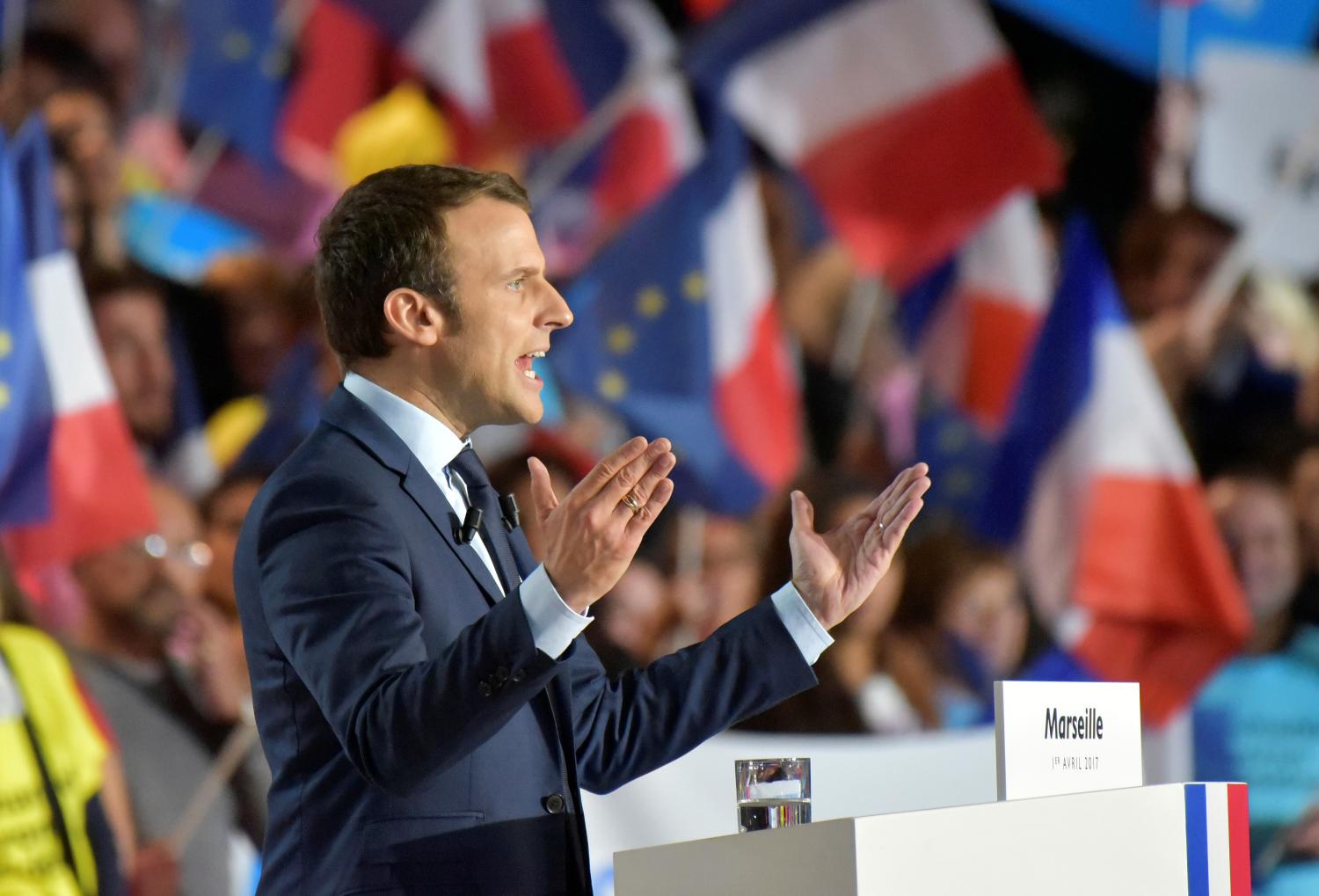
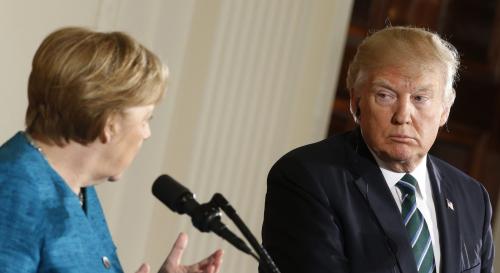
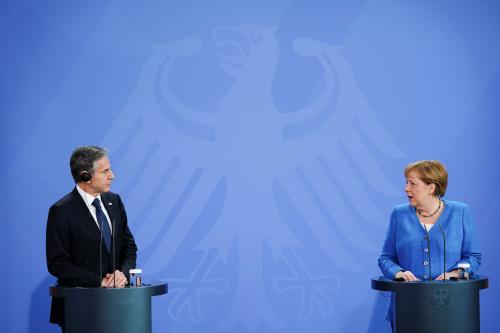
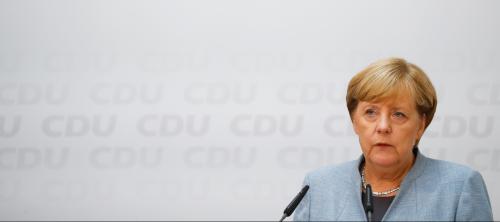

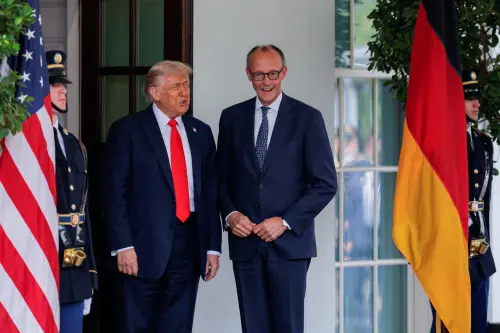
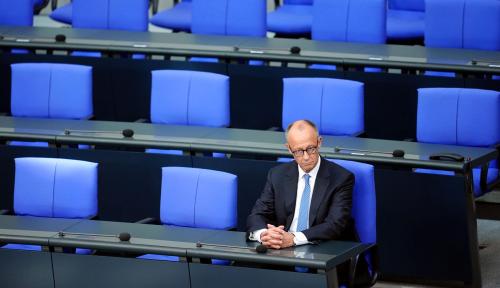
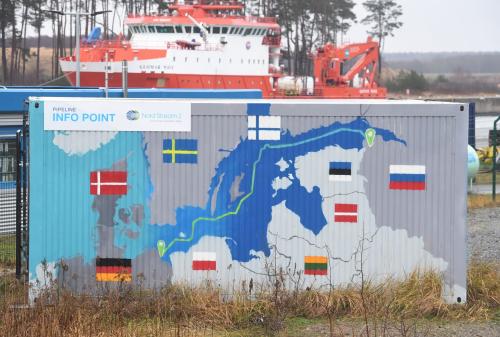
Commentary
Is Angela Merkel the leader of the free world now? Not quite.
November 17, 2016